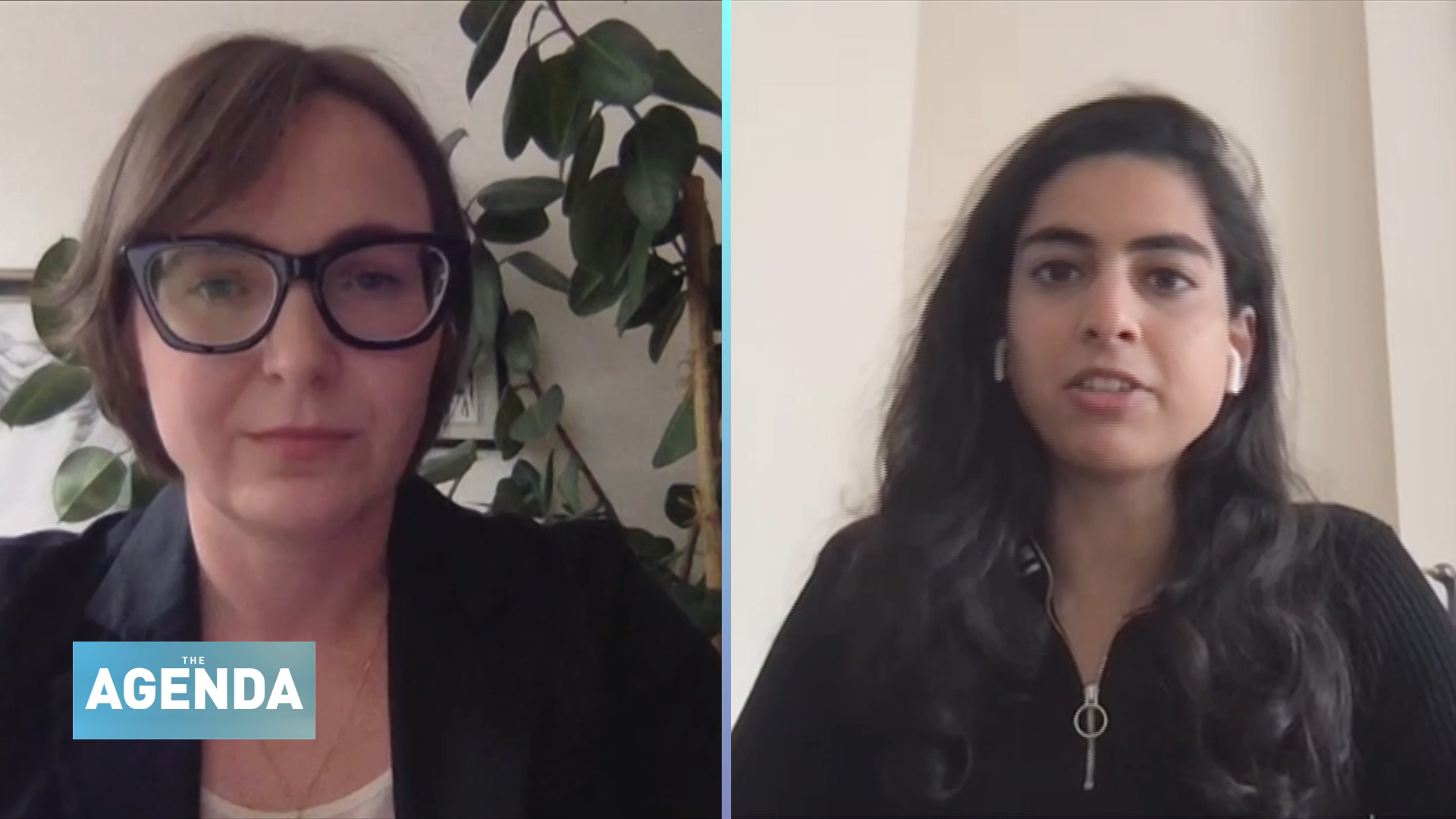09:41

WHAT'S THE ISSUE?
The good news is COVID-19 vaccines are working and restrictions across Europe are starting to be lifted. But for the many people who have spent the last year strictly following lockdown rules, the prospect of freedom isn't as appealing as it once was.
After much time spent isolated at home, socially distanced in the streets and masked up, "the great outdoors" now provokes anxiety rather than enjoyment and they don't quite feel ready to re-enter society.
To understand how people will need to adapt to the "new normal," Stephen Cole spoke to psychologist Nadia Svirydzenka and therapist Anjali Singh-Mitter.

MEET THE EXPERTS
Nadia Svirydzenka is a Senior Lecturer in Psychology at De Montfort University in the UK. She is also the Deputy Director at the Mary Seacole Research Centre of Mental Health, Culture & Diversity. She attended the University of Dundee, where she was awarded a PhD in Social and Developmental Psychology.
Anjali Singh-Mitter is a therapist who specializes in developing resilience in children. Recently she has been working closely with the children of key workers who have been impacted by the pandemic. Singh-Mitter uses a combination of cognitive behavioral therapy and hypnosis alongside leading London therapist Shomit Mitter, her father.

WHAT DO THEY SAY?
Svirydzenka stressed the importance of not comparing your post-lockdown progress with others:
"We need to accept our differences and be a bit kinder to ourselves. If we need a bit of time, that's absolutely fine. I think the COVID-19 situation has taken control out of our hands, so as we proceed, having those clear boundaries can support and lower that anxiety.
"And if you do feel frustrated that somebody is going faster than you - that somebody jumped in and they're living their best life and you for some reason can't - think in a year, will this matter?"
Anjali Singh-Mitter told Stephen Cole that the children seem to be coping with the changes better than the adults:
"What I'm seeing is a huge generational gap in the way that people are approaching life. - younger people are just craving to get back to the way things were. Kids are really loving being back in school, which is brilliant. But for older clients, there's the capacity to think much more about the ramifications of a loss of work or feeling a bit more anxious in terms of health anxiety.
"So in terms of returning to life after lockdown, the adults are actually finding it a lot harder than the kids."

WHAT'S NEXT?
As people return to their offices, places of education and social lives, Svirydzenka said it's all about managing our expectations.
"Offices look different, the university experience looks different." She tells Stephen Cole, "the future doesn't look the same as maybe we have imagined but we have the capacity to adjust to it."
So, what sort of tools do we all need to do to cope moving forward?
"It is quite tricky to generalize," Singh-Mitter explains. "Because some people are more inclined towards mindfulness but others will actually get very anxious trying to get into that headspace." Her best advice is to keep a diary: "we should take everything one step at a time, so we don't get overwhelmed. I think a diary and a plan is a great way of doing that."
In the long run - Singh-Mitter is confident that people will cope because of how adaptable humans are. "Six months ago, people were getting frustrated - but we have learned to live at a slower pace."
The World Health Organization's (WHO) European arm has recently announced it will commit to addressing the devastating impacts of the pandemic on mental health:
"People in the European region are quite literally breaking down under the strain of COVID-19 and its consequences. The pandemic has shaken the world. More than 4 million lives lost globally, livelihoods ruined, families and communities forced apart, businesses bankrupted, and people deprived of opportunities. These consequences of the pandemic have exacted an enormous toll on the mental health and wellbeing of people in the European region," said Hans Kluge of WHO Europe.
"Mental health and wellbeing should be seen as fundamental human rights. Improving public mental health services is a win-win for everyone. It won't just mitigate the mental health impacts of COVID-19, but support the sustainable improvement of overall mental health, result in economic savings which thereby also promotes economic recovery, and support the achievement of wide-ranging policy objectives including achieving universal health coverage by 2030," he added.


